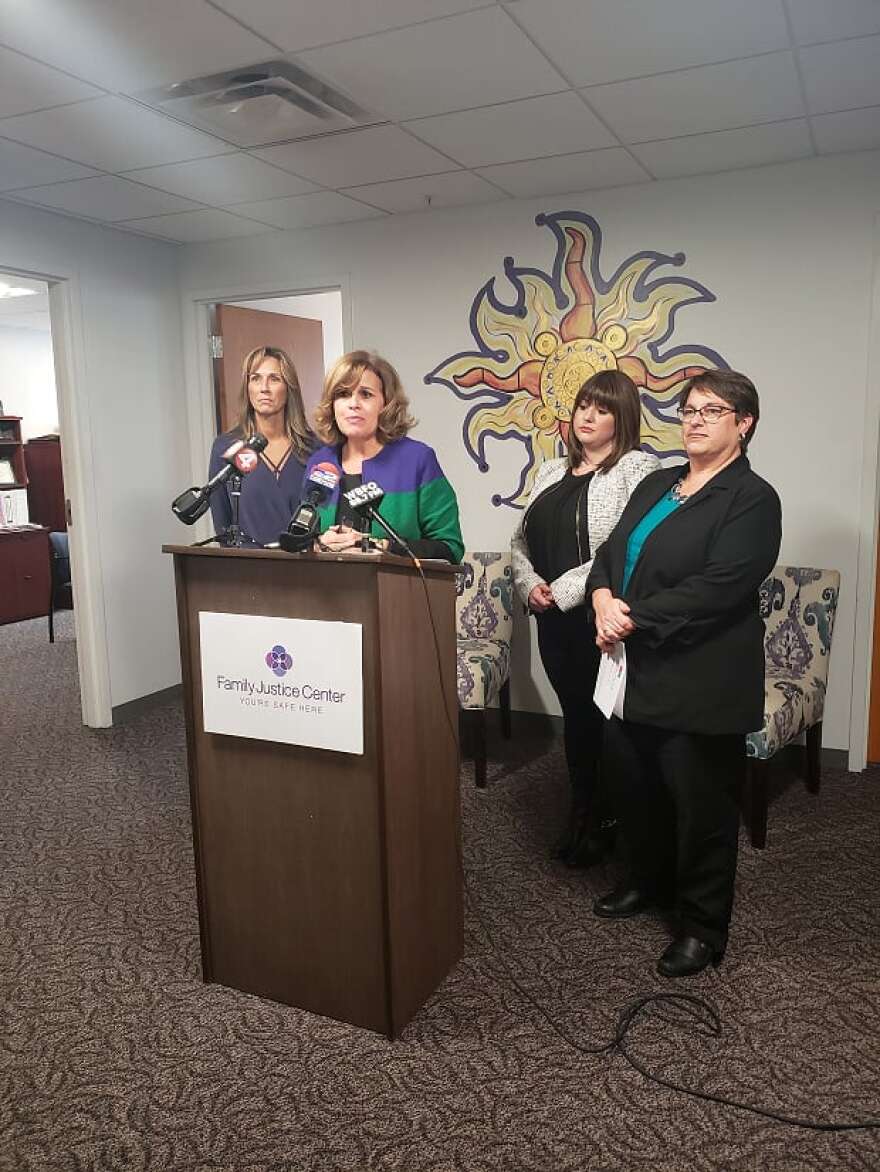Starting a conversation with a loved one you see in an abusive relationship is a difficult task. It can be even harder when that loved one is young. That’s why the Family Justice Center is launching a new campaign to help provide resources guiding adults who are looking to help teenagers in abusive relationships.

In partnership with WNED-TV, “Reach Out” will provide a website, reachoutwny.org, with several videos and supportive information.
Family Justice Center Executive Director Mary Murphy said they’ve lacked resources in the past to guide adults when helping students.
“We know that 1 in 3 girls in that early-preteen age group, to early-20 age group, will be a victim in an abusive relationship. We are seeing this in the schools,” said Murphy. “We know that 1 in 7 boys will also be in an abusive relationship.”
The website’s videos and supportive information will help identify red flags and start conversations.
“This is not just going to be one conversation. This could be 3 or 4 or 5 conversations. Patience is key. Not being judgmental is key and stressing to the student that you’re having a conversation with everything is confidential,” she said. “We’re not telling students what to do. We’re going to spell out the resources. Help them get their arms around what might be going on and then put the power back in their hands”
Logan Spaschak is a domestic violence survivor who said nobody’s okay with domestic violence, but for many, having a conversation about it is still uncomfortable.

“If we allow it to happen, if we just allow people to live their lives and we stay separate because ‘That’s not my life. That’s not my personal issue’, then you are going to end up allowing that abuse to happen and sad stories come from that,” he said.
Spaschak said these are things a majority of people don’t understand.
“We need to, as a society, as a people, pull together and be willing to have uncomfortable conversations in order to help people realize what it is they are going through and what decisions they need to make in order to have a happy and healthy relationship,” he said.

Domestic violence survivor Jennifer Taylor said she was a teenager when she met her abuser. She and her friends were not thinking of domestic violence at the time.
“My family also didn’t have the words to come to me and say we think this is happening. They thought maybe they were going to overstep a boundary. What I always say is, make that person’s life bigger than your relationship with them,” said Taylor.
A 30-minute television program will premiere on WNED-TV at 10 p.m. Oct. 24 and runs again at 10:30 p.m. Oct. 28. It will talk about relationship violence and its impact no matter the age.
WNED/WBFO will host a Reach Out project launch event on Oct. 30 at 4:30 p.m. at its studios on 140 Lower Terrace.







